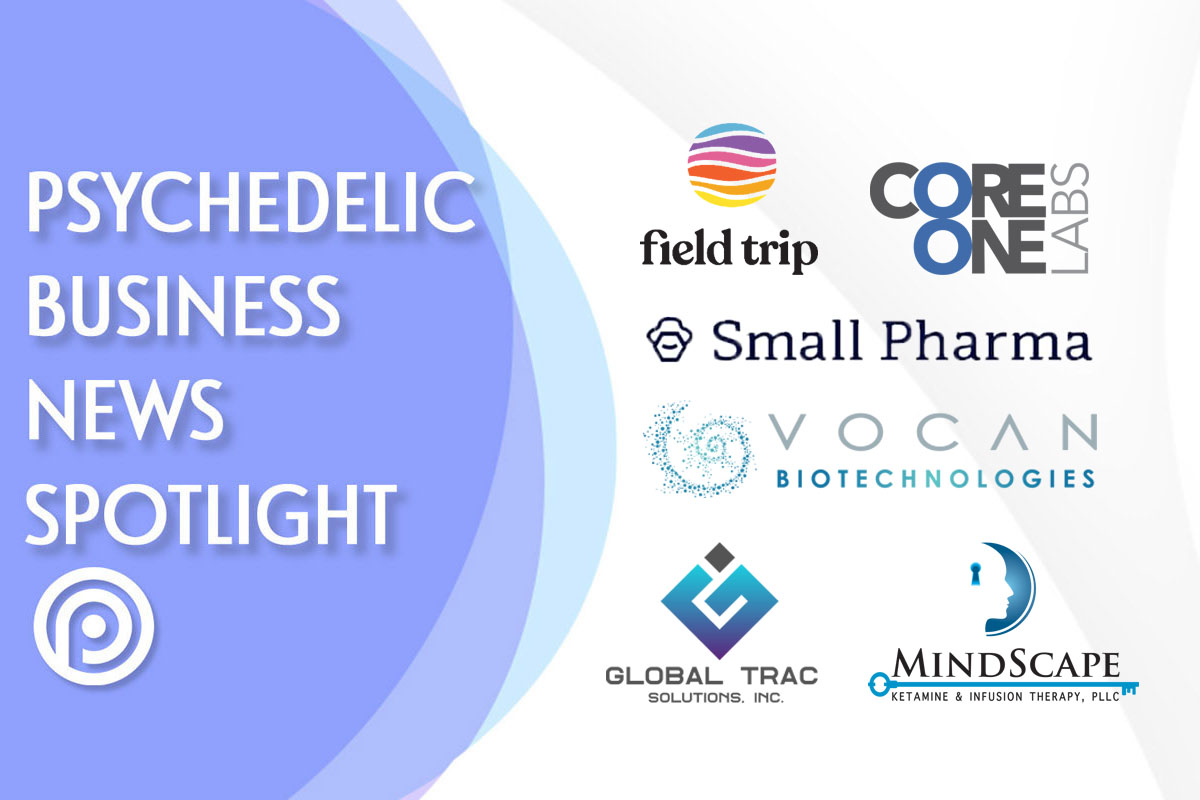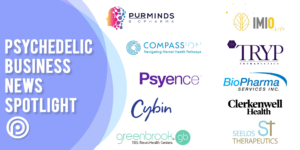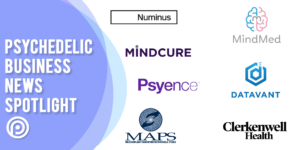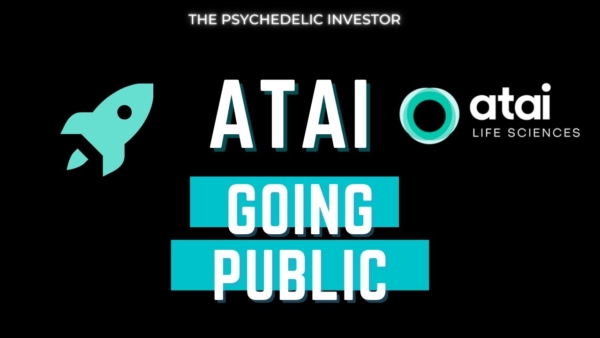
Core One Labs Discovers Cost-Effective Psilocybin Production Process
As psilocybin research continues and more municipalities legalize it for therapeutic purposes, the demand for more supply will keep growing. Two years ago, a gram of psilocybin could cost researchers $7,000 – $10,000, so the race has been on to find a more cost effective way to produce the increasingly popular hallucinogen. This week in psychedelic business news, Vancouver-based Core One Labs (CLABF) announced it has created a new process they expect will bring that cost under $100 a gram by the end of 2022. “It’s a game changer that allows for rapid, stable and cost-effective psilocybin production to bring the price down of the psychedelic compound that is showing enormous promise in treating addiction, depression and PTSD,” says Dr. Robert Hancock, a University of British Columbia microbiologist leading the team. The team is using specially constructed, optimized DNA sequences making bacteria into biological factories for psilocybin production via a fermentation process, allowing the substance to be created in a lab under controlled conditions.
Vocan Biotechnologies Files Patent for Production of Biosynthetic N-methyltryptamine
More psychedelic business news for Core One Labs came out this week, too. Subsidiary Vocan Biotechnologies has filed a patent application with the United States Patent and Trademark Office for the production of biosynthetic N-methyltryptamine (NMT, also known as monomethyl tryptamine, MMT) through its optimized recombinant production system. Similar to the aforementioned method of psilocybin production, this process — also led by Dr. Hancock — utilizes bacteria acting as a biological factory to produce bioidentical psychedelic analogs such as biosynthetic NMT. The company says its proprietary production process can manufacture a more superior cGMP compliant API grade NMT, and other psychedelic products, than any chemically synthesized counterpart, and believes a final patent approval would propel Core One past industry rivals, since the game-changing production process enables mass-production of synthetic psilocybin and other psychedelic compounds or analogs more rapidly, while also reducing the production cost and market price drastically.
Field Trip Health Eyes Expansion in Oregon
The psychedelic business is preparing to descend on Oregon, the only U.S. state to legalize psilocybin so far, and Field Trip Health (TSX: FTRP; FTRP.WT; NASDAQ: FTRP) told Willamette Week it plans to open at least one psilocybin therapy center there after regulators figure out all of the policy details. Matt Emmer, the Canadian company’s Vice President of Health Care Practice, described the vision as, “A best-in-class, carefully designed, curated clinical environment so that people can both safely access these modalities, but also in a setting that is comfortable, is inspiring, is warm, inviting.” Field Trip already has a dozen operational clinics around the globe, most of which are in North America and dispense ketamine, a completely legal psychedelic, but will offer more types of psychedelics, such as psilocybin, as they become legalized.
Houston’s Only Ketamine Clinic MindScape Infuses Virtual Reality Into Treatment
Texas is increasingly becoming a hot spot for psychedelic research, with the state’s specific interest in healing veterans’ PTSD, so the psychedelic business could heat up there in coming years, as well. Houston’s only ketamine clinic, MindScape Ketamine & Infusion Therapy, announced this week it will be offering virtual, guided meditations alongside their ketamine treatments, which can boost the effects of IV ketamine by introducing constructive ideas to the patient receiving the ketamine therapy while they are in the ketamine induced “dissociative” state. Psychedelic Spotlight has previously reported on the growing virtual component of the psychedelic industry, and we suspect more providers will embrace VR technology to enhance the healing experience.
Small Pharma’s Promising Results From World’s First Clinical Trial for DMT-Assisted Therapy in Major Depressive Disorder
Small Pharma (TSXV: DMT) (OTCQB: DMTTF) shared its analysis of Phase I data from the combined Phase I/IIa clinical trial of its DMT-inspired drug candidate, SPL026, paired with psychotherapy for the treatment of Major Depressive Disorder. With no drug-related serious adverse events and minimal short-lived adverse events reported on dosing day, in addition to a positive relationship with dose and no negative effects on well-being identified at any point during the three-month follow-up, lead investigator David Erritzoe of Imperial College London declared “promising results at this stage of the development.” He adds, “The dosing time of 30 minutes, in comparison with up to 6 hours seen with alternative approaches, has the potential to offer a real benefit in terms of treatment regimen for both patients and providers.”
PSYC Expands Media Content Library & Industry Presence with Acquisition of The Psychedelic Investor
Last but not least in this week’s roundup of psychedelic business news, Psychedelic Spotlight‘s parent company, Global Trac Solutions, Inc. (OTCPink: PSYC) is pleased to announce it has acquired the branding and ownership rights to The Psychedelic Investor, which includes their digital media content library featuring over 100 psychedelic business-focused videos. Launched in 2020 by co-founders James Hallifax and Maria Holyanova, The Psychedelic Investor has emerged as an increasingly popular source and authority for insightful information and perspective related to the public market sector of the medicinal psychedelic industry. In conjunction with the asset purchase, Hallifax and Holyanova will assume the respective roles of Content Director and Director of Psychedelic Spotlight. “The opportunity for PSYC to welcome to its team the talent, knowledge, and creative genius that Mr. Hallifax and Ms. Holyanova each possess is something that we believe will be tremendously beneficial in our ongoing pursuit of building the most prominent multimedia platform for the psychedelics industry,” says PSYC CEO David Flores.





